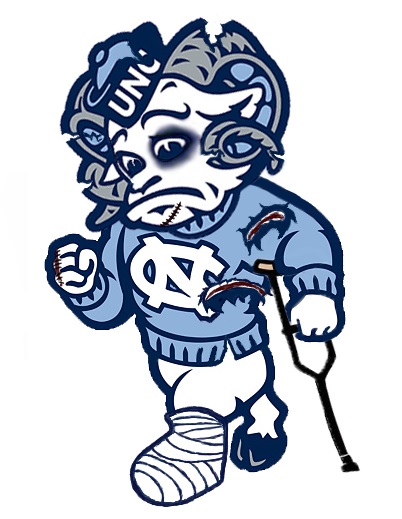The reporting that Dan Kane started in 2010 is finally garnering some national attention from non-sports outlets. Last week, the The NY Times, and today, BloombergBusinessweek:
The corruption of academics at the University of North Carolina’s Chapel Hill campus could turn into the most revelatory of all of the undergraduate sports scandals in recent memory. Beginning three years ago with what sounded like garden-variety reports of under-the-table payments from agents and improper classroom help for athletes, the affair has spread and deepened to include evidence of hundreds of sham courses offered since the early 1990s. Untold numbers of grades have been changed without authorization and faculty signatures forged—all in the service of an elaborate campaign to keep elite basketball and football players academically eligible to play.
After belatedly catching up with the UNC debacle in this recent dispatch, I’ve decided the still-developing story deserves wider attention. Or, to put it more precisely, the excellent reporting already done by the News & Observer of Raleigh merits amplification outside of North Carolina.
The rot in Chapel Hill undermines UNC’s reputation as one of the nation’s finest public institutions of higher learning. Officials created classes that did not meet. That’s not the only reason more scrutiny is needed. There’s also the particularly pernicious way that the school’s African and Afro-American Studies Department has been used to inflate the GPAs of basketball and football players. The corruption of a scholarly discipline devoted to black history and culture underscores a racial subtext to the exploitation of college athletes that typically goes unidentified in polite discussion. (UNC’s former longtime Afro-Am chairman, Julius Nyang’oro, has been criminally indicted for fraud.)
…
Dan Kane, the News & Observer‘s lead investigative reporter, does old-school, just-the-facts-m’am work—and more power to him. Digging up the basic data has been a lonely and arduous task for which Kane has been rewarded with craven accusations of home state disloyalty. As he wrote last month, the six official “reviews” and “investigations” of the wayward Afro-Am Department have all failed to connect the dots in any meaningful way. In coming weeks and months, I hope I can supplement Kane’s dogged efforts with some long-distance perspective. Valuable tips from concerned local people, some of them UNC alumni, are already pouring in, and that’s part of the reason I’m going to pursue the story. Keep those e-mails coming.
One source of insight is Jay Smith, a professor of early modern French history at UNC. A serious scholar who understands the university’s sports-happy culture, Smith has developed a powerful distaste for the way his employer has obfuscated the scandal. “What’s going on here is so important,” he told me by telephone, “because it’s emblematic of what I think goes on at major universities all across the country,” where the business of sports undermines the mission of education. That sounds right to me.
I suspect there are folks in the administration who will go to great lengths to prevent Jay Smith’s book from being published, and then go to even greater lengths to discredit him after it is released.
Hopefully Smith will answer the question about Nyang’oro’s motivation, because without proper incentive for the chronic, rampant fraud, his actions are wholly irrational.



